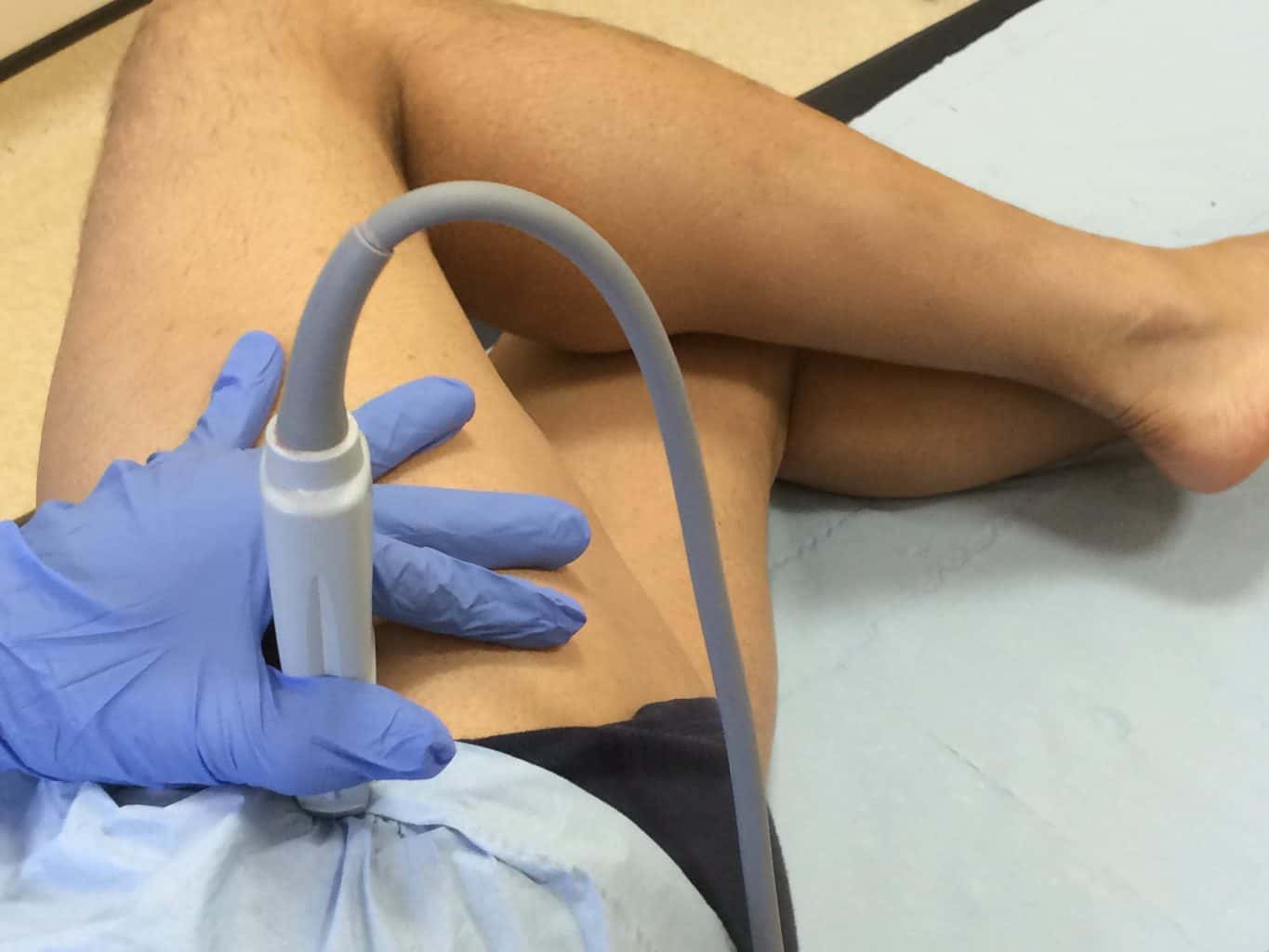Hernia & Soft Tissue Ultrasound Scan
A Hernia & Soft Tissue Ultrasound Scan is a safe, non-invasive imaging test that evaluates the muscles, soft tissues, and groin area to detect hernias and other abnormalities. Ultrasound is particularly effective for identifying conditions that may cause pain, swelling, or lumps, providing clear and detailed images without the need for radiation.

Common types of hernias include:
- Inguinal hernia – most common in men
- Femoral hernia – more common in women
- Umbilical, Epigastric, Incisional, and Spigelian hernias
In addition to hernias, soft tissue ultrasound can detect cysts, lipomas, ganglion cysts, enlarged lymph nodes, and other soft tissue abnormalities. In some cases, the scan may also reveal signs of an abdominal aortic aneurysm (AAA), which would require further evaluation by a specialist.
This scan is quick, painless, and non-invasive, making it a reliable method for assessing a range of soft tissue and hernia-related conditions. Early detection helps guide appropriate management and treatment, ensuring better outcomes and relief from discomfort.
What are the reasons for this scan?
- A palpable lump or bulge, mainly in the groin region
- Pain caused by a lump or swelling
How are the Hernia and Soft Tissue Scans performed?
During the scan, you will typically lie on an examination table while a water-based gel is applied to the area being examined. The transducer is then moved over the skin, sending sound waves into the body and receiving echoes that are converted into images on a computer screen. This allows the clinician to visualize soft tissues and detect any hernias or abnormalities. In some cases, you may be asked to cough or strain while standing, as this can help reveal hernias. The scan is painless, non-invasive, and carries no known risks.
What are the preparations for Hernia & Soft Tissue Scans?
No special preparation is required for this scan. Patients are advised to wear loose, comfortable clothing that allows easy access to the area being examined.
What are the limitations of Soft Tissue Scans?
While ultrasound is highly effective for evaluating soft tissue masses, it has limitations. In some cases, it may not definitively diagnose a mass or distinguish between benign and malignant lesions. Additional imaging, such as MRI or CT scans, may be needed to provide a more complete assessment and guide appropriate treatment. It is important to consult your healthcare provider to determine the most suitable imaging approach based on your individual circumstances.
What is the price of Hernia Scan and Soft Tissue Scan?
Hernia Scan: £150
Soft Tissue Scan (one area): £150
Location: Kensington Olympia, London W14 0SH – No GP referral required


